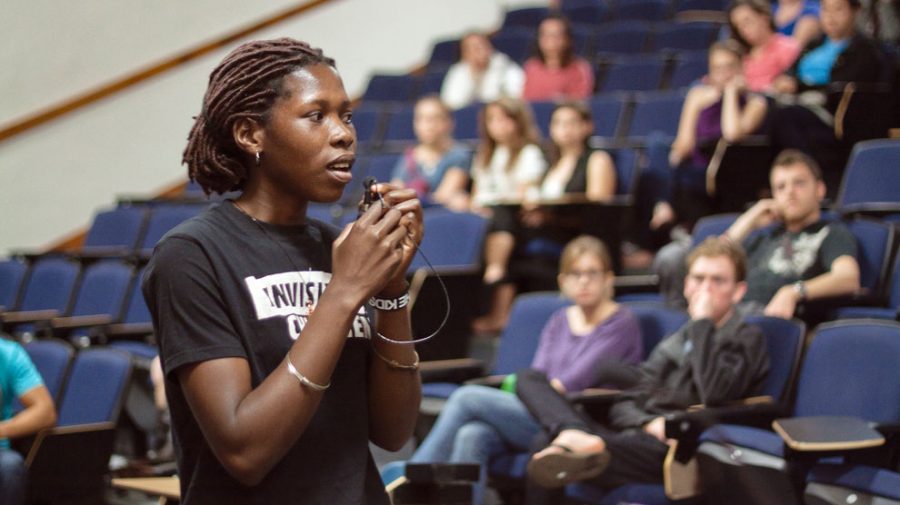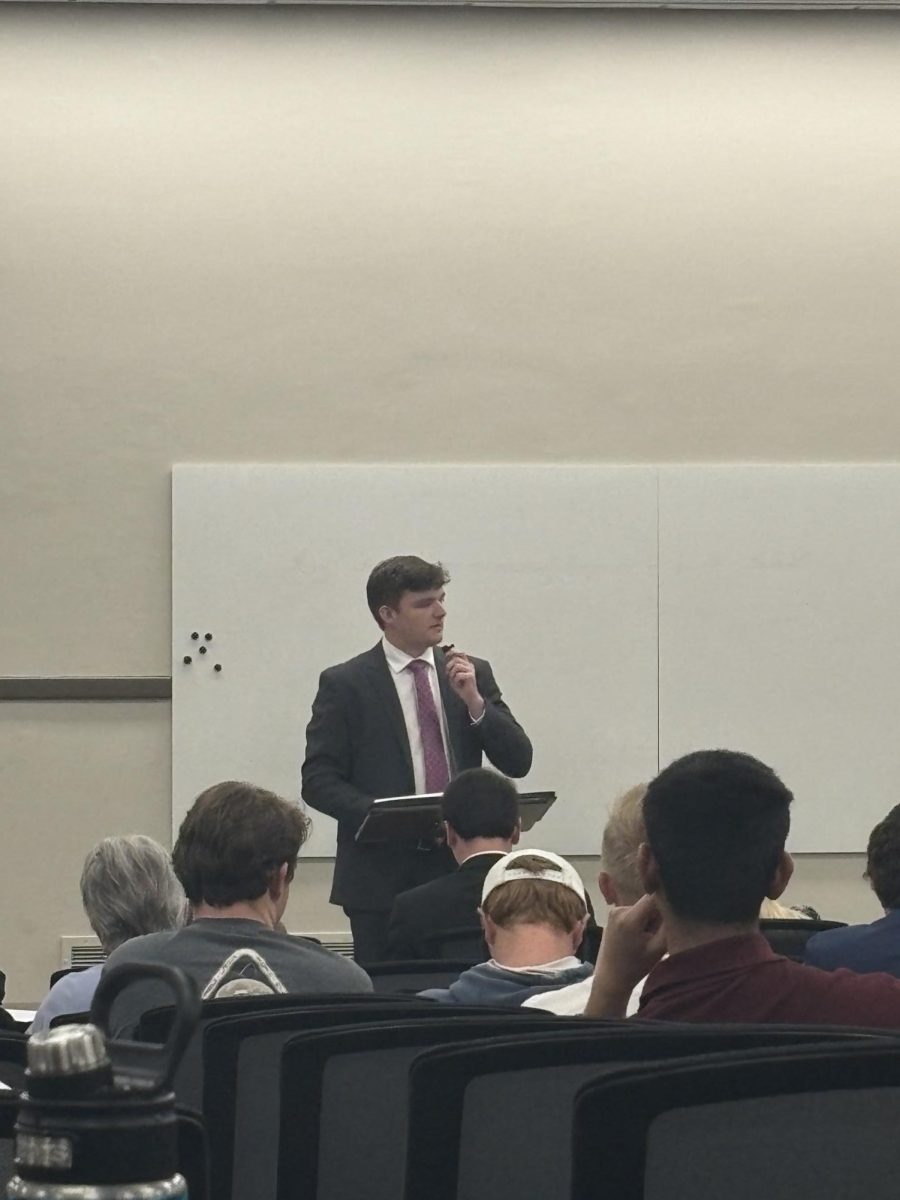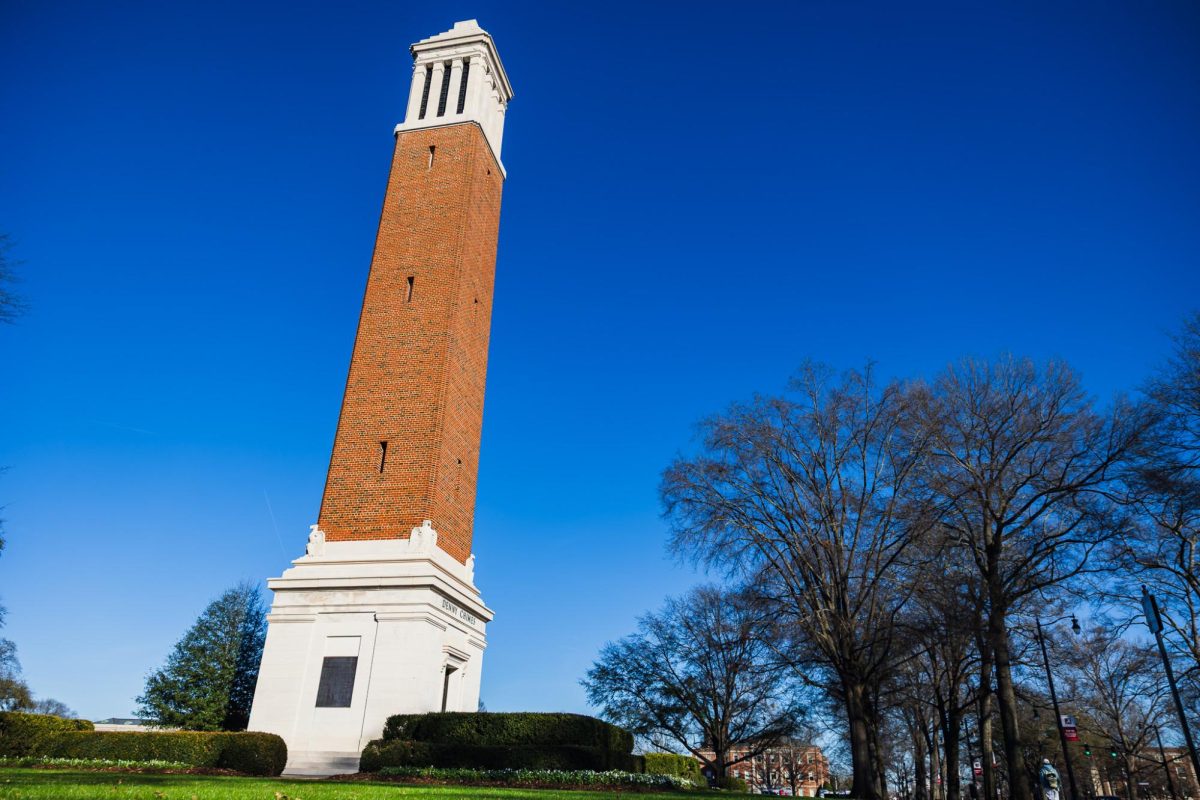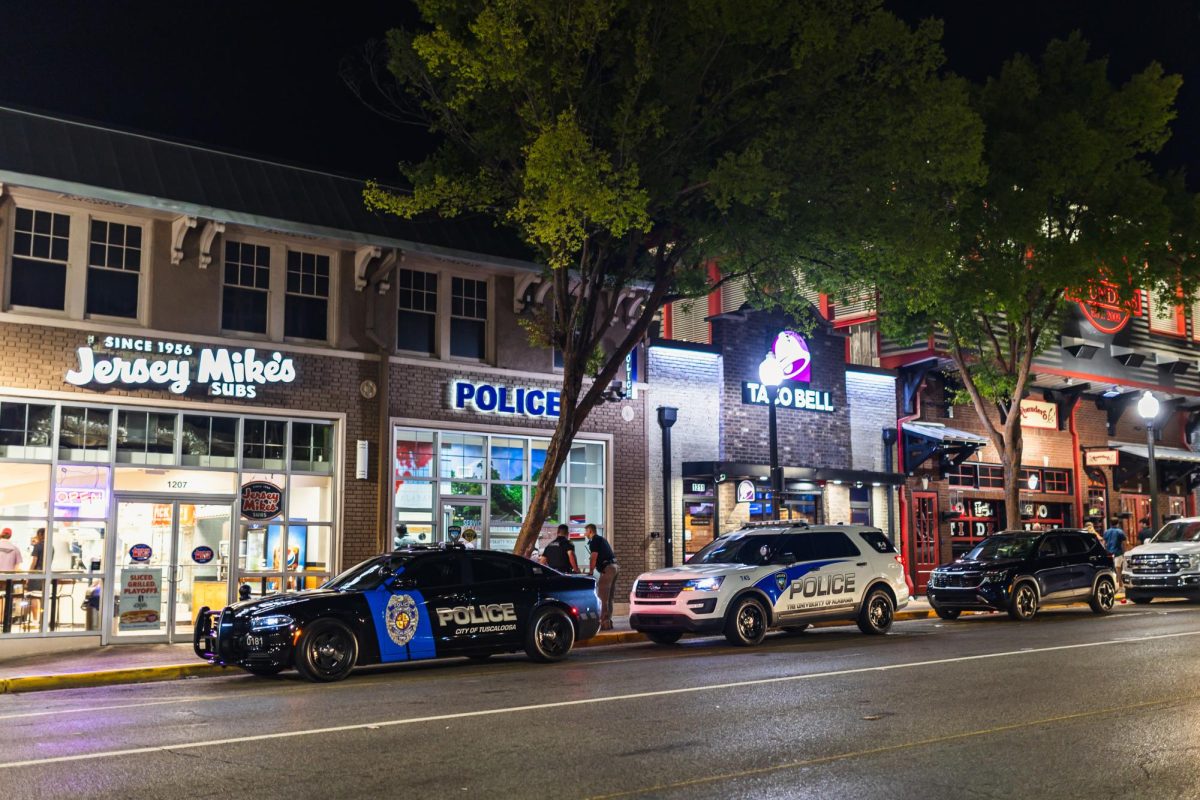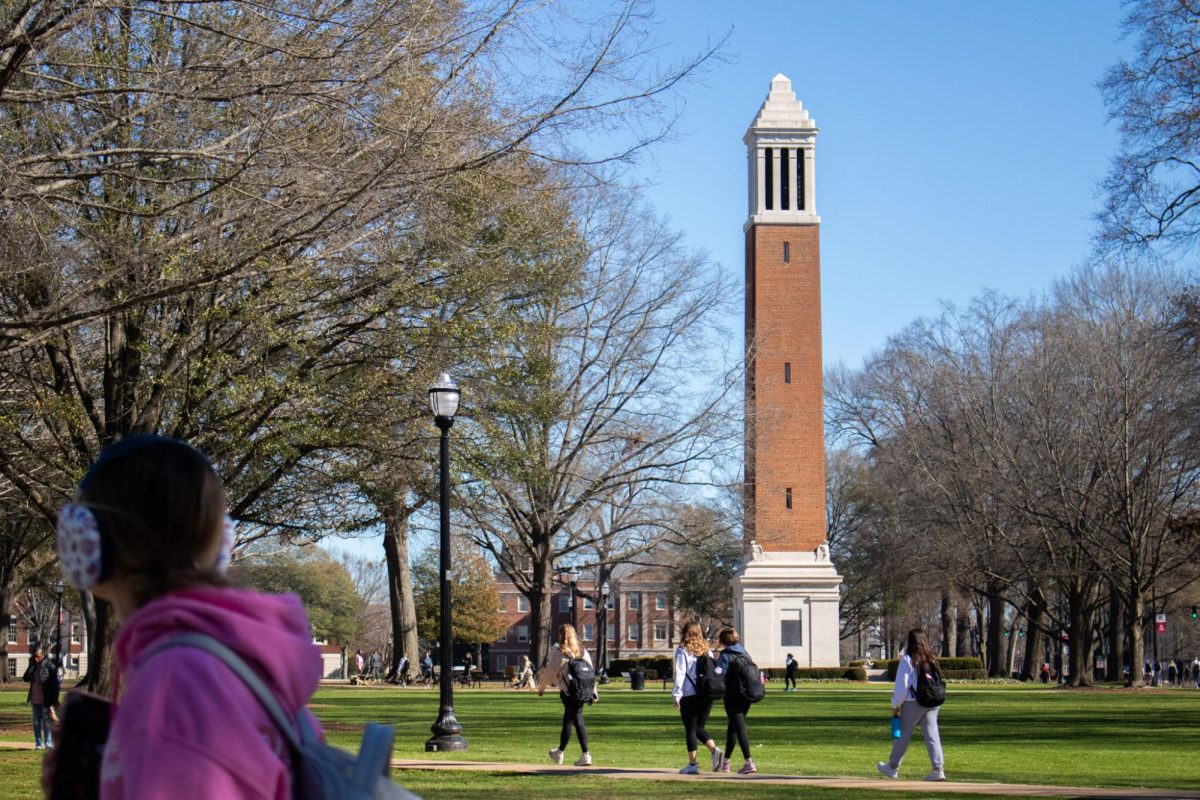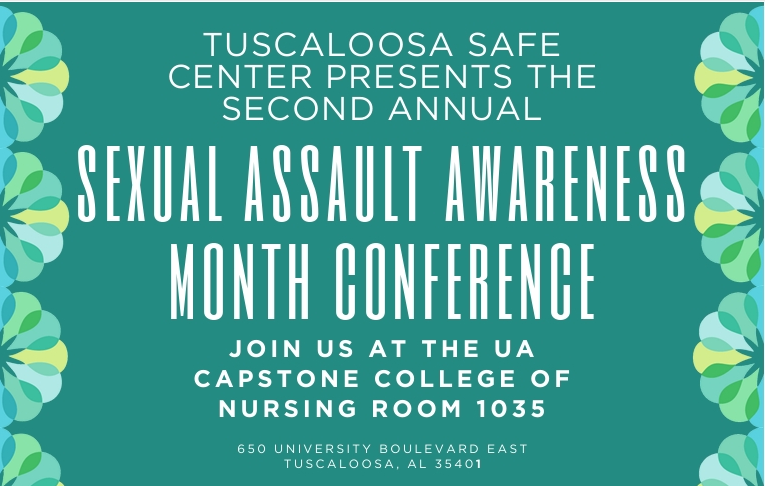Students learn more about ‘Invisible Children’ thanks to guest speaker
In 1998, Agnes Aromorach and her parents left her village in Northern Uganda to escape a war that had raged for a decade. She fled to the nearby town where she began her education, but the ceaseless fighting between the Joseph Kony and his guerilla forces made finishing university an impossible dream.
“I was born in war, I studied in the war, I lived in the war,” Aromorach said. “The war was all I knew.”
Last night, Aromorach told her story to over 200 UA students at an event sponsored by Invisible Children, an organization that has been raising awareness of the conflict in Uganda and the surrounding countries since 2003.
The event featured a screening of Invisible Children’s new documentary, a speech from Aromorach, and a Q&A session with Invisible Children representatives.
Senior Austen Lafferty, one of the event’s coordinators, contacted Invisible Children after seeing one of the group’s documentaries last spring.
“It was severely moving, knowing that there are people living completely different lives, going through things that are completely against what we know as ‘moral,’” he said.
The documentary told the story of Jason Russell, Bobby Bailey and Lauren Poole, three amateur filmmakers who traveled to Uganda in 2003, where they encountered firsthand the devastation of guerilla warlord Joseph Kony and his Lord’s Resistance Army. For more than two decades the LRA has kidnapped tens of thousands of children in villages across east Africa, forcing as many as 30,000 into military service.
The event was co-sponsored by the University Honors College and Apwonjo, a club to promote awareness of conflicts in Sub-Saharan Africa.
“There’s a select group of us who are really involved, however much of the campus isn’t involved at all,” said junior Valerie Walters. “They aren’t aware of the issue, or when they do, they think they have no connection to their personal lives.”
Junior Dasha Makarenko, an Apwonjo member, spent Sunday night chalking the campus for the event, but even she knew little about the conflict.
“That’s one of the reasons I came tonight, to learn about it,” Makarenko said.
According to Makarenko, college students are in an excellent position to aid the causes of groups such as Invisible Children.
“It’s empowering for people like us…when you’re young, you feel like you can do things, you feel invincible, but when you get older, you lose that,” she said. “Events like this give a little bit of hope that you can do something.”
“We are very much a youth-based organization,” said Nate Pavon, officially titled “Deep South Roadie.”
Pavon said Invisible Children reaches almost exclusively 14 to 23-year-olds, and the average donation is $23. Pavon himself is only one year out of high school.
“You guys are some of our strongest supporters by far,” he said. “Coming back here has been fantastic.”
Emily Swanson, a senior studying nursing, first encountered Invisible Children when they visited UA during her freshman year. She hopes to work for NGO’s in the rural Himalayas.
“I think a lot of times we think we have to wait until we’re older and more established,” Swanson said. “These guys didn’t know they could do it. They just tried it. You don’t have to wait, just go for it.”
In East Africa, Joseph Kony’s forces terrorize an area the size of California that spans three countries, but the fighting has died down in Aromorach’s home of northern Uganda. She dreams of returning one day and finishing her education, but for now she continues to go from school to school, telling her story.
“When I talk, it moves people. It makes people believe that this is real.”
For more information about Invisible Children, visit InvisibleChildren.com. To learn more about Sub-Saharan Africa, check out Apwonjo, attend their meeting tonight at 7:30 in Lloyd room 202.



